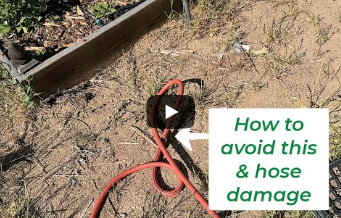What Type of Soil To Put in Your Raised Bed
This post is a continuation of our raised bed series with all you need to know about raised bed gardening. So, you’ve built your raised bed, and its sitting empty, just waiting for soil so you can begin planting. What you put in your bed is extremely important to the health and longevity of your plants. Soil supports plant growth by providing 5 core items:
- An anchor for root systems. By allowing the spread and anchoring of roots, soil provides a means for the plant to remain safe and connected to the ground.
- Oxygen – The spaces within good soil allow root systems to access oxygen to grow and prosper.
- Water – Soil provides the spaces that hold water for plant growth.
- Insulation – soil is a natural blanket for root systems during extreme temperature fluctuations.
- Nutrients – Soil provides access to nutrients for plants to grow and thrive.
How you build out your soil composition to provide an optimal growth environment for your plants is key to raised garden success.
There are several questions you need to ask before you get started:
- What are you planting? A little master of the obvious here, but you would be surprised how plans change 🙂
- Are there any special soil chemistry requirements?
- How are you going to irrigate?
- Are there special drainage requirements?
What Are You Planting?
Be sure and check the soil requirements for the types of plants you want to grow. You can put in a broad and general soil mix, but if you want the best growth and healthiest plants, you will need to tailor the soil makeup for your needs. For example, if you are growing carrots, and don’t add sand to create a loose, free growth medium, it will stunt growth. Likewise, a bed that does not drain well will create an environment where bulbs will rot during rainy weather. Any seed site will provide extensive information on the type of soil required for your plants. Example: Johnny’s Seeds.
Are There Special Soil Chemistry Requirements?
pH is one of the most important soil chemistry levels you can adjust for success of your plantings. Slightly acidic pH levels, 6-6.5, are generally most favorable for plant growth, but certain species require adjustments to these numbers. The great part about raised beds is that you typically fill them with soil that is optimized for general plant growth. Some plants may require slight adjustments, and your garden center can advise different amendments to adjust your pH.
How Will You Irrigate Your Raised Bed?
Providing water and a source can sometimes be an afterthought, but it’s easiest build your irrigation out before you add soil to the raised bed. different soil types and plants may require different types of irrigation: drop, sprinkles, spray heads, etc.
Are There Special Drainage Requirements?
Your soil makeup with have a big impact on moisture retention and drainage. Creating a composition that will provide adequate moisture and drain in heavy downpours can be challenging. Certain types of plants do not tolerate poor drainage well, and without adequate drainage you can rot your roots.
The good news? Nowadays there are so many pre-made soil types and amendments at any garden center, you easily add to your raised bed for any type of growth environment. Below is a great “middle of the road” soil composition for your bed:
- 60% Topsoil
- 30% Compost
- 10% Potting Soil
This mix provides texture and air pockets, along with excellent drainage, and is appropriate for just about any type of plant. You can read more on raised bed gardening and all its glory here: Raised Bed Gardens Category Page
Recent Posts

The Advantages of Built-Up Garden Beds: A Gardener’s Best Friend

The Secret Weapon for Lush Blooms: How to Create the Perfect Fertilizer Schedule

Create a Stunning Cottage Garden with These Easy-to-Grow Flowers

Fastest Growing Trees: Transform Your Landscape Quickly

What to Plant in July: A Comprehensive Guide for Gardeners










